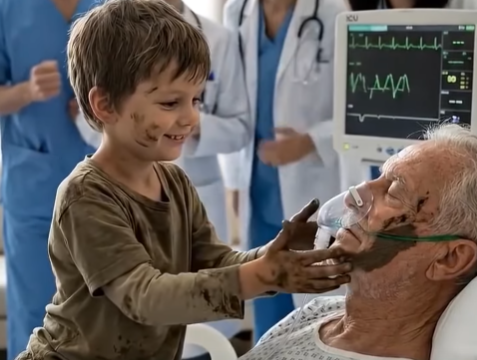Some people wake up remembering every vivid detail of their dreams, while others insist they don’t dream at all—or at least never recall anything once morning arrives. For generations, people have wondered whether dreams carry hidden meaning or if they are nothing more than random mental noise. While many believe dreams are spiritual messages or reflections from realms we can’t see while awake, a number of scientists argue that dreams simply come from neurological activity happening inside the brain during sleep. The truth may lie somewhere in the middle.

Even though our bodies rest at night, our brains remain active, processing emotions, memories, and information. Sometimes, dreams mirror the events of the day. Other times, they reflect our worries or reveal feelings we haven’t fully acknowledged while awake. But when a dream features someone who has passed away, it often feels different—more emotional, more intense, and, for many people, more meaningful. So why does this happen?
Dreams involving a deceased loved one are more common than most people realize, and they often appear during moments of transition in our own lives. According to Healthline, these dreams tend to surface when we experience major life changes such as beginning a new job, moving to a different city, ending or starting a relationship, or navigating a period of uncertainty. The dream itself is important, but what truly matters is how it makes us feel when we wake up.
Psychologist Rubin Naiman, Ph.D., has dedicated his career to studying sleep, dreams, and how the mind behaves at night. He explains that dream interpretation is not about taking everything literally but about understanding the emotional and symbolic messages behind the dream. “Dream interpretation is about decoding the dream,” he says. “It enlightens us and expands our awareness psychologically, offering an expansion of consciousness.” In other words, dreaming of someone who has passed away may reflect personal growth, emotional shifts, or unresolved feelings connected to current changes in our life.
Team Louish / Flickr
Naiman notes that experts often fall into two major viewpoints when it comes to dreaming. One group of neuroscientists believes that during REM sleep, the brain performs routine maintenance, clearing out unnecessary thoughts and organizing information from the day. As a result, the imagery we see might simply be “dust” stirred up during the process—random and without deeper meaning. On the other hand, some psychologists and cultural scholars believe dreams can be more profound than waking life. Many traditional cultures, including Indigenous Australian groups, view dreams as essential to spiritual identity and emotional well-being, suggesting that nighttime visions connect us to something deeper than everyday awareness.
Experts generally sort dreams about deceased loved ones into four categories.
The first category includes dreams that help us cope with grief. When someone we care about passes away, our minds continue trying to understand and process the loss. Seeing them in a dream may be part of the healing process, allowing us to gradually accept their absence while still feeling connected to them.
The second category centers on unresolved emotions. If we had conflicts, unanswered questions, or unfinished conversations with the person before their passing, guilt or regret may follow us long afterward. Those emotions may surface in dreams, giving us a symbolic space to face what we could not address in life.
A third interpretation comes from dream analyst Lauri Loewenberg, who suggests that dreaming of a deceased loved one may reflect our recognition of certain habits or patterns we shared with them. For instance, if the person struggled with unhealthy behaviors, and we notice signs of similar tendencies in ourselves, the dream could be a gentle reminder to pay attention to our choices.
Finally, some experts believe dreams involving loved ones who have passed on can feel like meaningful “visits.” These dreams often portray the person looking healthy, peaceful, or joyful. They might smile, speak reassuringly, or simply be present without saying anything at all. If the dream leaves us with a sense of comfort, it may symbolize the enduring bond we still feel—a quiet emotional greeting, a reminder that love doesn’t end with physical absence.
Regardless of which interpretation resonates with us, dreams have a way of touching something deep within the human experience. They reflect emotions we may not voice, fears we try to ignore, and connections that remain strong even when someone is no longer physically here. When we dream of someone who has passed, it can feel incredibly powerful—not necessarily because they are sending a message, but because our hearts are expressing something through the symbolism of the dream.
Dreams can also help us understand how we’re evolving. Major life transitions often stir buried emotions, and the familiar face of a loved one in a dream can symbolize protection, guidance, or reassurance. Whether the dream feels comforting or unsettling, the emotional impact is usually what reveals the message hidden within.
It’s important to remember that everyone dreams differently, and no single explanation fits every experience. Some people wake up feeling peace, others feel sadness, and some feel a sense of closeness they haven’t felt in years. What matters most is acknowledging that dreams are part of our emotional landscape. They offer insight into how we process love, loss, and personal transformation. Even if science can’t fully explain them, dreams remind us that our memories and connections continue to shape us long after someone is gone.
In the end, dreams about deceased loved ones invite us to reflect not only on the past but also on where we are in the present. They help us understand our journey, honor our feelings, and recognize the lasting impact of those who touched our lives. And for many people, that alone gives these dreams profound meaning.





